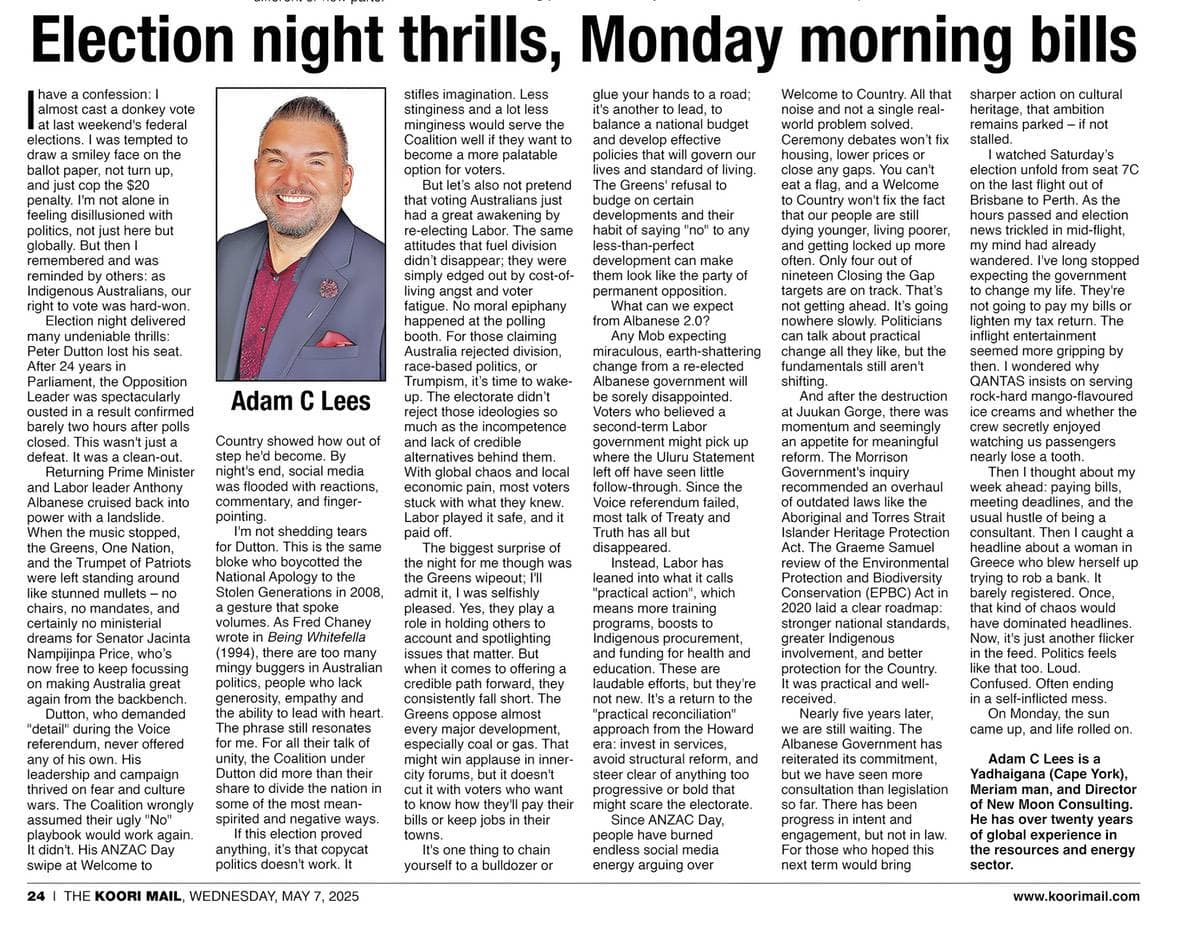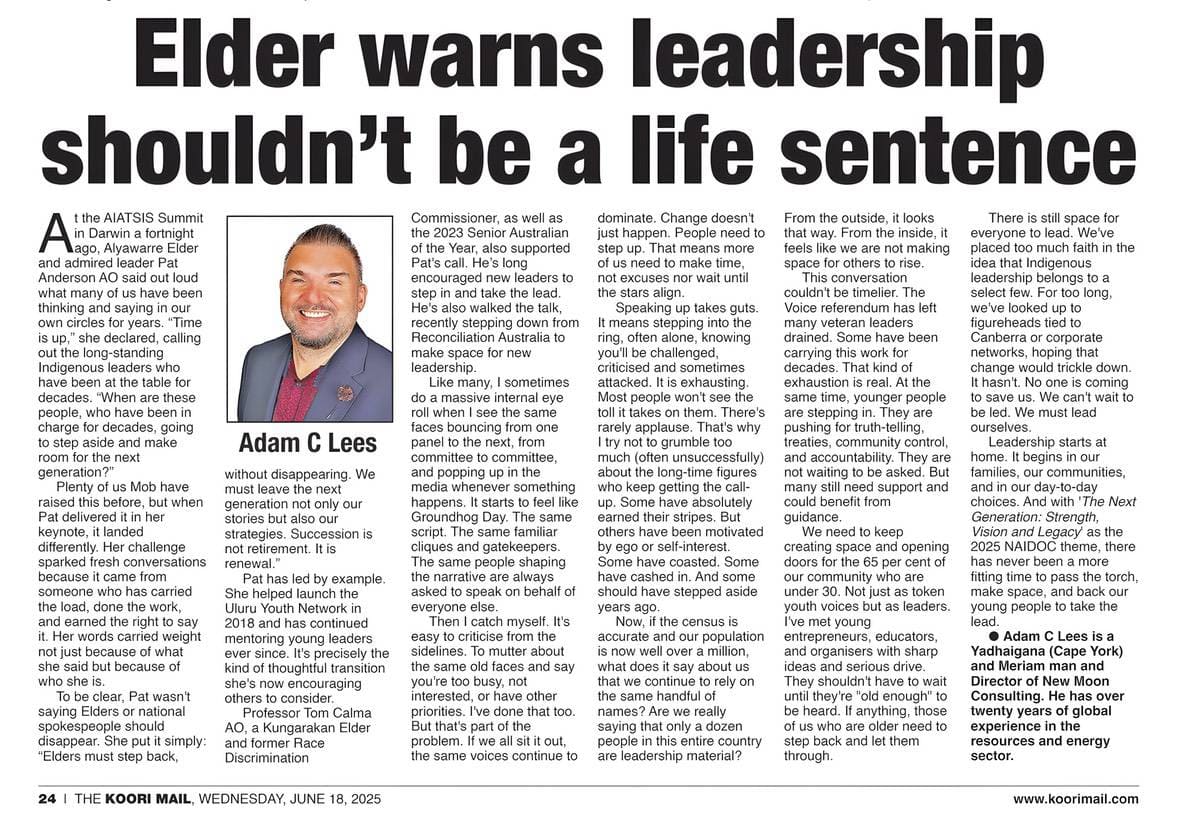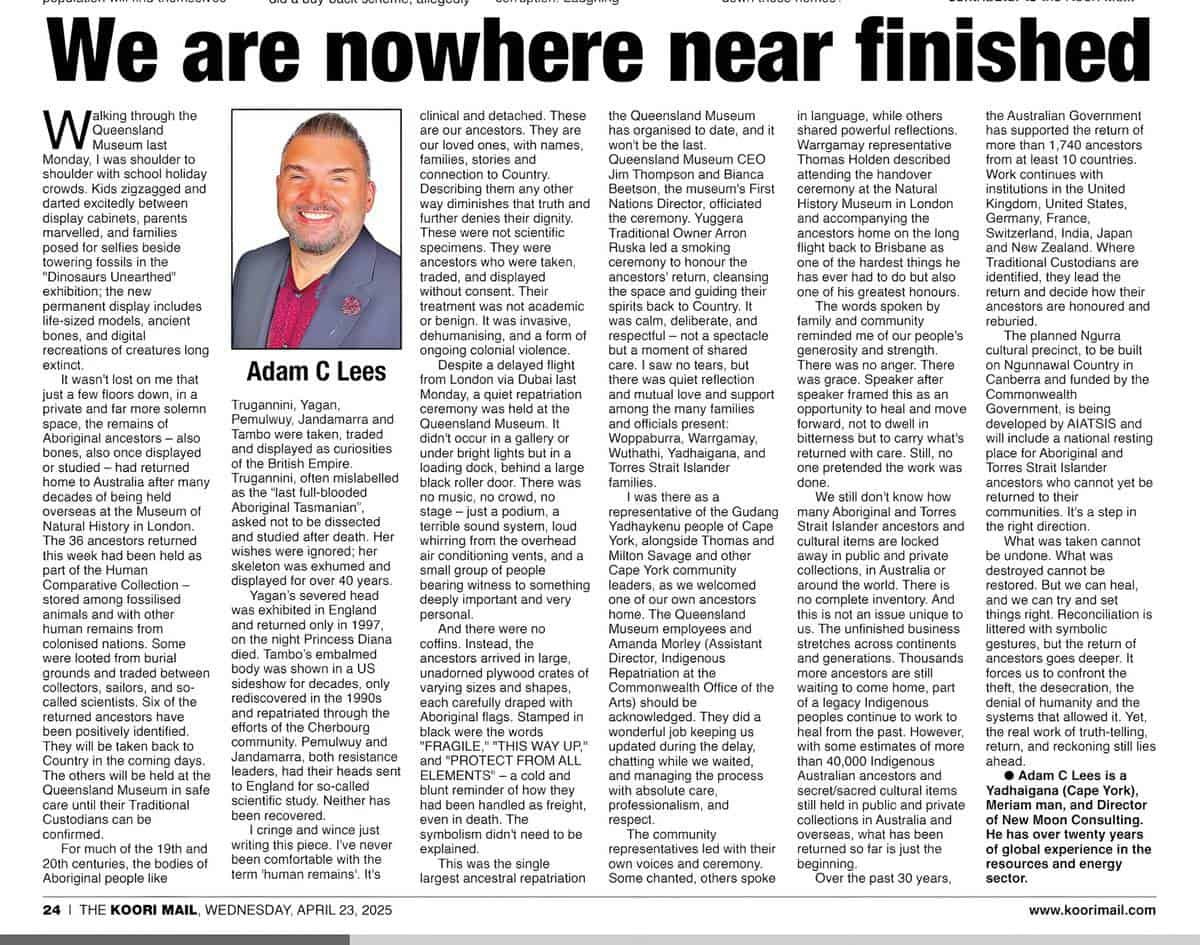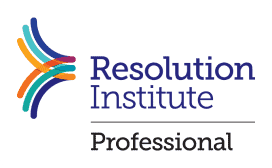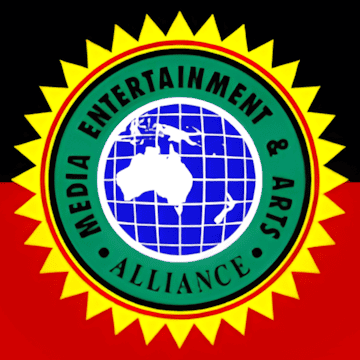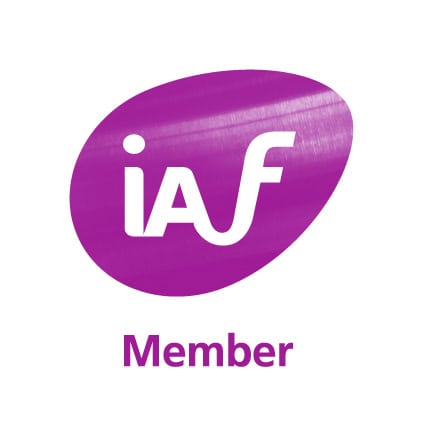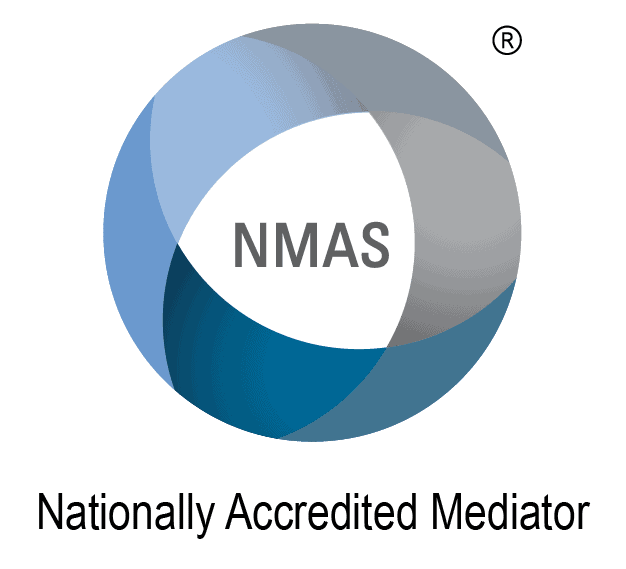I have a confession: I almost cast a donkey vote at last weekend’s federal elections. I was tempted to draw a smiley face on the ballot paper, not turn up, and just cop the $20 penalty. I’m not alone in feeling disillusioned with politics, not just here but globally. But then I remembered and was reminded by others: as Indigenous Australians, our right to vote was hard-won.
Election night delivered many undeniable thrills: Peter Dutton lost his seat. After 24 years in Parliament, the Opposition Leader was spectacularly ousted in a result confirmed barely two hours after polls closed. This wasn’t just a defeat. It was a clean-out.
Returning Prime Minister and Labor leader Anthony Albanese cruised back into power with a landslide. When the music stopped, the Greens, One Nation, and the Trumpet of Patriots were left standing around like stunned mullets – no chairs, no mandates, and certainly no ministerial dreams for Senator Jacinta Nampijinpa Price, who’s now free to keep focussing on making Australia great again from the backbench.
Dutton, who demanded “detail” during the Voice referendum, never offered any of his own. His leadership and campaign thrived on fear and culture wars. The Coalition wrongly assumed their ugly “No” playbook would work again. It didn’t. His ANZAC Day swipe at Welcome to Country showed how out of step he’d become. By night’s end, social media was flooded with reactions, commentary, and finger-pointing.
I’m not shedding tears for Dutton. This is the same bloke who boycotted the National Apology to the Stolen Generations in 2008, a gesture that spoke volumes. As Fred Chaney wrote in Being Whitefella (1994), there are too many mingy buggers in Australian politics, people who lack generosity, empathy and the ability to lead with heart. The phrase still resonates for me. For all their talk of unity, the Coalition under Dutton did more than their share to divide the nation in some of the most mean-spirited and negative ways.
If this election proved anything, it’s that copycat politics doesn’t work. It stifles imagination. Less stinginess and a lot less minginess would serve the Coalition well if they want to become a more palatable option for voters
But let’s also not pretend that voting Australians just had a great awakening by re-electing Labor. The same attitudes that fuel division didn’t disappear; they were simply edged out by cost-of-living angst and voter fatigue. No moral epiphany happened at the polling booth. For those claiming Australia rejected division, race-based politics, or Trumpism, it’s time to wake-up. The electorate didn’t reject those ideologies so much as the incompetence and lack of credible alternatives behind them. With global chaos and local economic pain, most voters stuck with what they knew. Labor played it safe, and it paid off.
The biggest surprise of the night for me though was the Greens wipeout; I’ll admit it, I was selfishly pleased. Yes, they play a role in holding others to account and spotlighting issues that matter. But when it comes to offering a credible path forward, they consistently fall short. The Greens oppose almost every major development, especially coal or gas. That might win applause in inner-city forums, but it doesn’t cut it with voters who want to know how they’ll pay their bills or keep jobs in their towns.
It’s one thing to chain yourself to a bulldozer or glue your hands to a road; it’s another to lead, to balance a national budget and develop effective policies that will govern our lives and standard of living. The Greens’ refusal to budge on certain developments and their habit of saying “no” to any less-than-perfect development can make them look like the party of permanent opposition.
What can we expect from Albanese 2.0?
Any mob expecting miraculous, earth-shattering change from a re-elected Albanese government will be sorely disappointed. Voters who believed a second-term Labor government might pick up where the Uluru Statement left off have seen little follow-through. Since the Voice referendum failed, most talk of Treaty and Truth has all but disappeared.
Instead, Labor has leaned into what it calls “practical action”, which means more training programs, boosts to Indigenous procurement, and funding for health and education. These are laudable efforts, but they’re not new. It’s a return to the “practical reconciliation” approach from the Howard era: invest in services, avoid structural reform, and steer clear of anything too progressive or bold that might scare the electorate.
Since ANZAC Day, people have burned endless social media energy arguing over Welcome to Country. All that noise and not a single real-world problem solved. Ceremony debates won’t fix housing, lower prices or close any gaps. You can’t eat a flag, and a Welcome to Country won’t fix the fact that our people are still dying younger, living poorer, and getting locked up more often. Only four out of nineteen Closing the Gap targets are on track. That’s not getting ahead. It’s going nowhere slowly Politicians can talk about practical change all they like, but the fundamentals still aren’t shifting.
And after the destruction at Juukan Gorge, there was momentum and seemingly an appetite for meaningful reform. The Morrison Government’s inquiry recommended an overhaul of outdated laws like the Aboriginal and Torres Strait Islander Heritage Protection Act. The Graeme Samuel review of the Environmental Protection and Biodiversity Conservation (EPBC) Act in 2020 laid a clear roadmap: stronger national standards, greater Indigenous involvement, and better protection for the Country. It was practical and well-received.
Nearly five years later, we are still waiting. The Albanese Government has reiterated its commitment, but we have seen more consultation than legislation so far. There has been progress in intent and engagement, but not in law. For those who hoped this next term would bring sharper action on cultural heritage, that ambition remains parked – if not stalled.
I watched Saturday’s election unfold from seat 7C on the last flight out of Brisbane to Perth. As the hours passed and election news trickled in mid-flight, my mind had already wandered. I’ve long stopped expecting the government to change my life. They’re not going to pay my bills or lighten my tax return. The inflight entertainment seemed more gripping by then. I wondered why QANTAS insists on serving rock-hard mango-flavoured ice creams and whether the crew secretly enjoyed watching us passengers nearly lose a tooth
Then I thought about my week ahead: paying bills, meeting deadlines, and the usual hustle of being a consultant. Then I caught a headline about a woman in Greece who blew herself up trying to rob a bank. It barely registered. Once, that kind of chaos would have dominated headlines. Now, it’s just another flicker in the feed. Politics feels like that too. Loud. Confused. Often ending in a self-inflicted mess.
On Monday, the sun came up, and life rolled on.
Adam C Lees is a Yadhaigana (Cape York), Meriam man, and Director of New Moon Consulting. He has over twenty years of global experience in the resources and energy sector.
